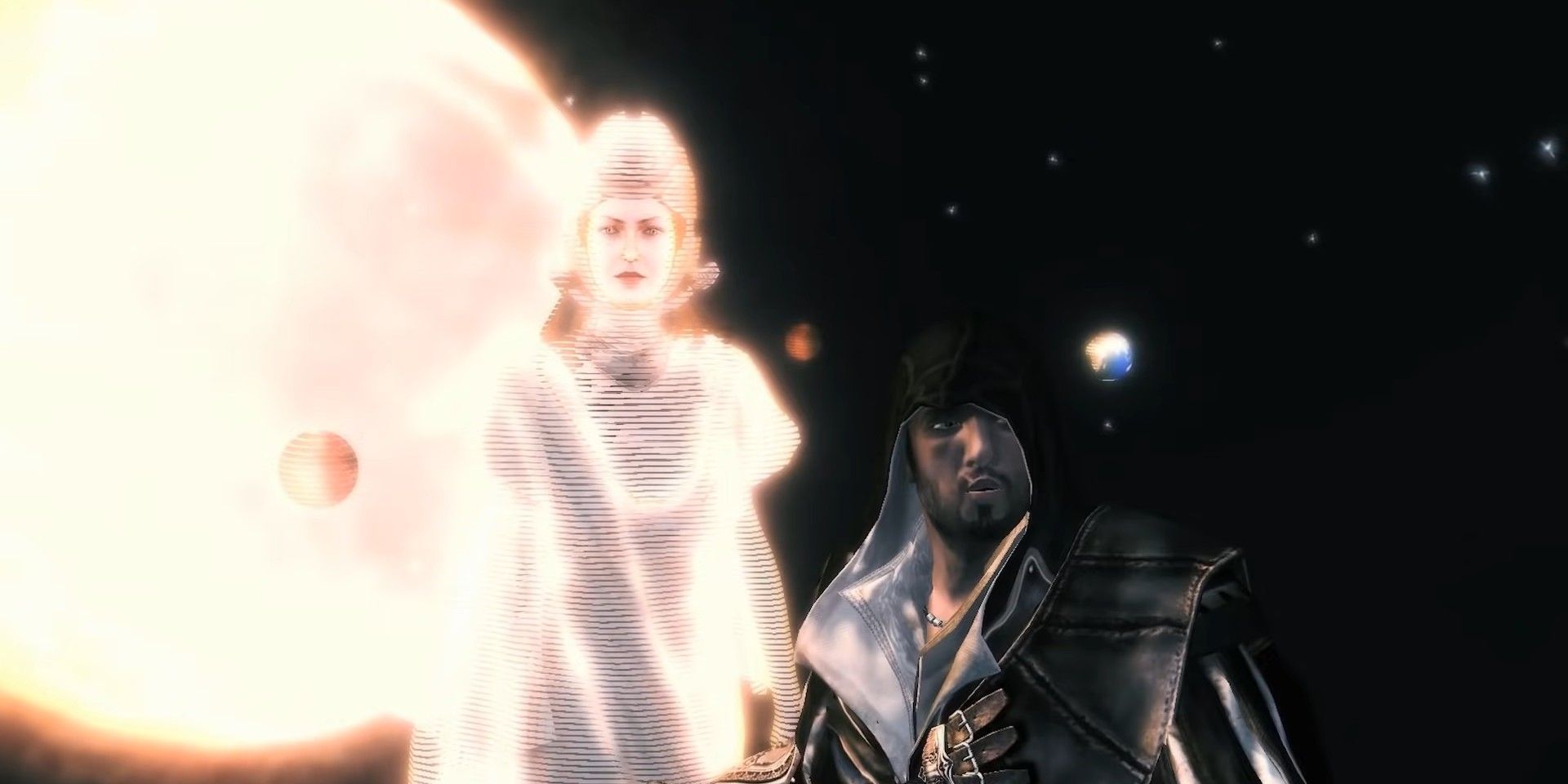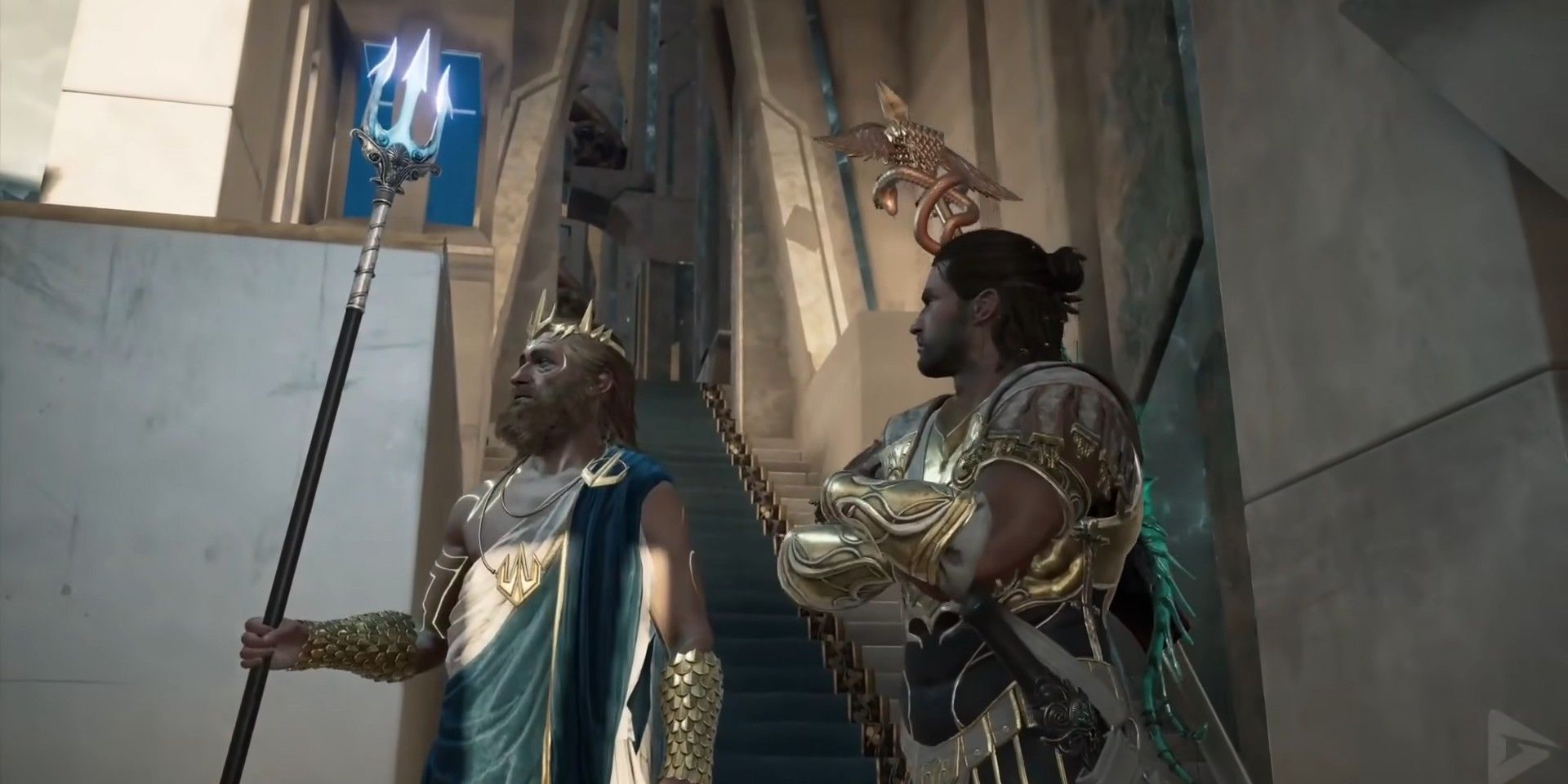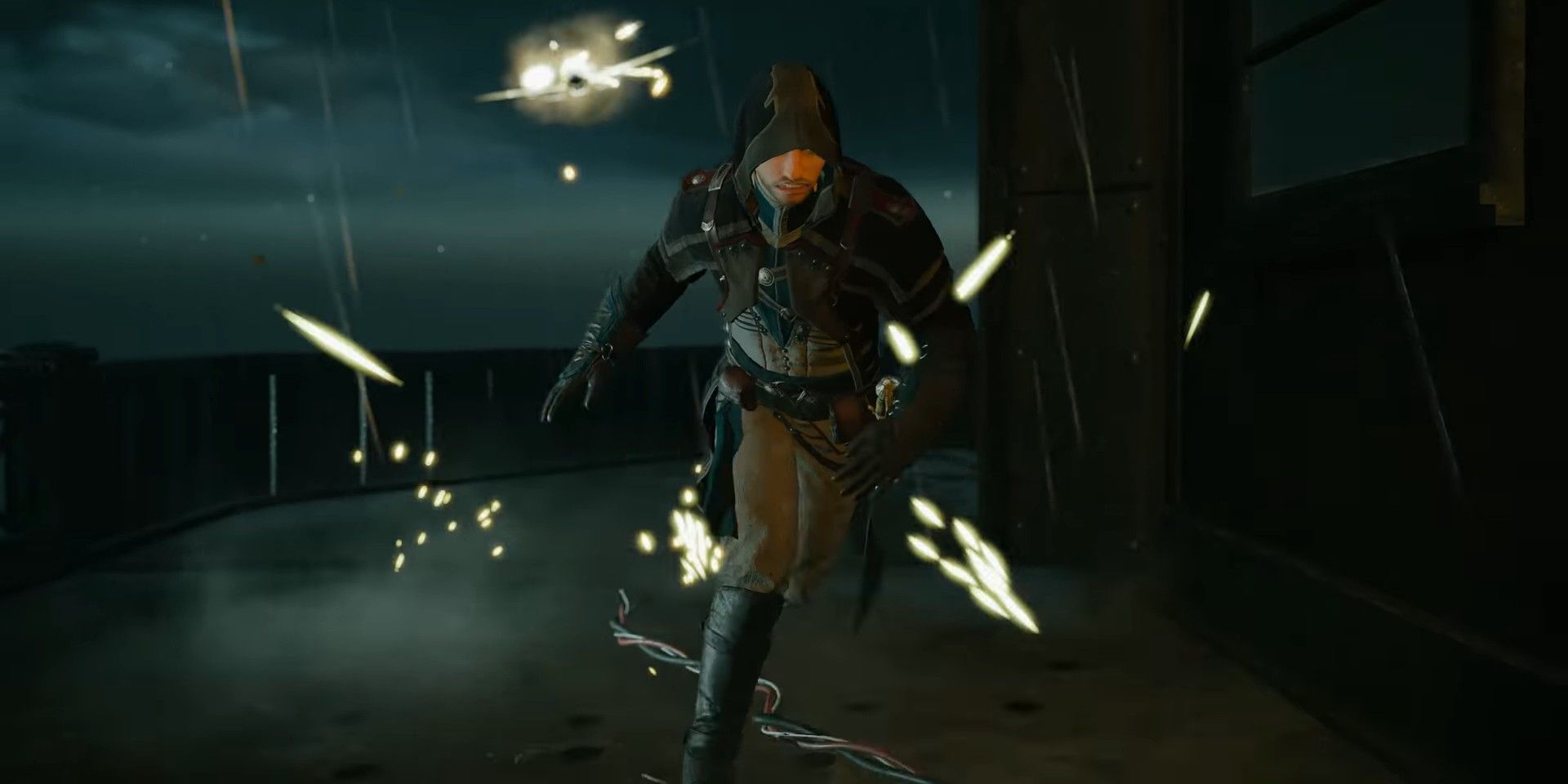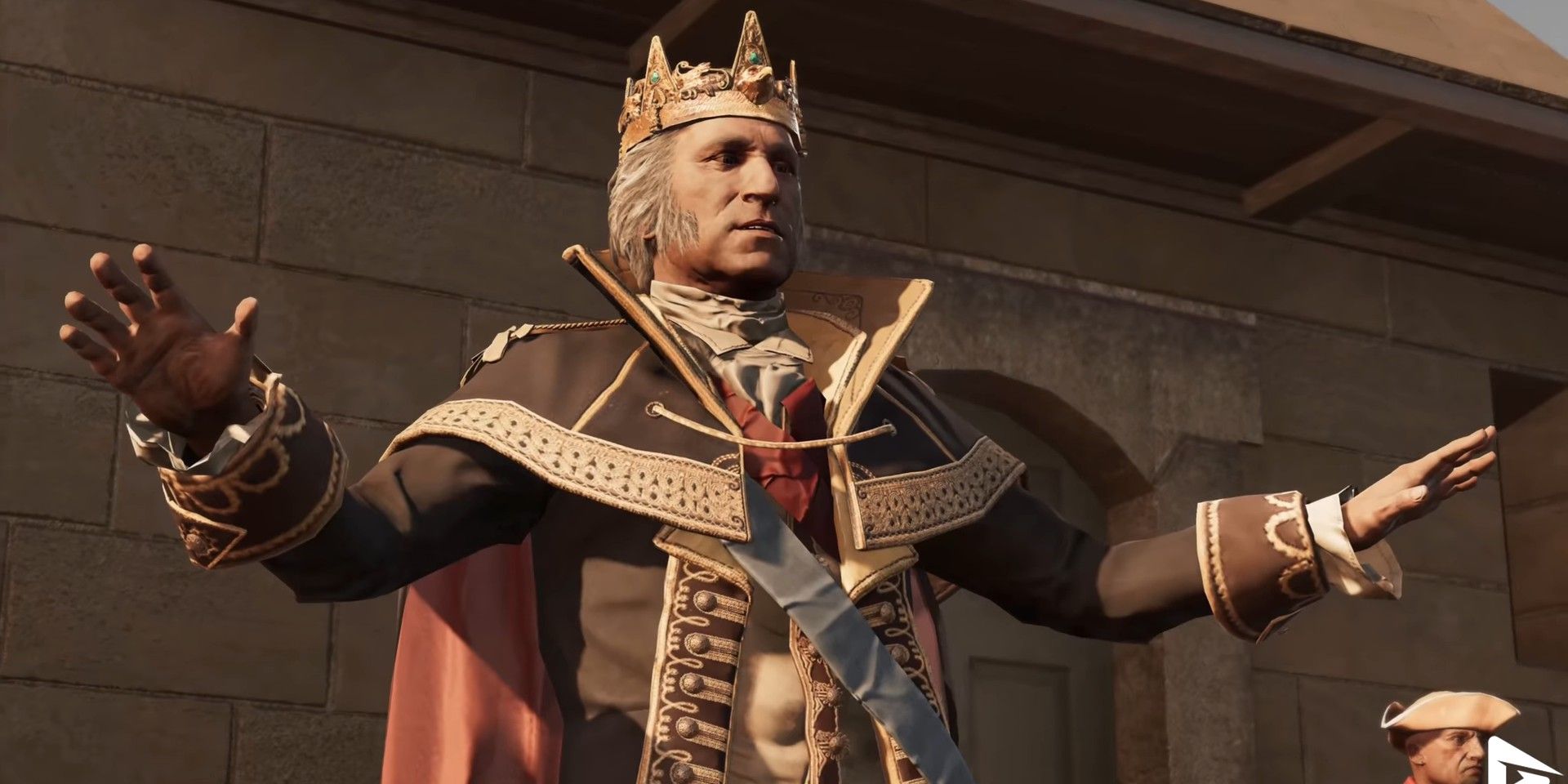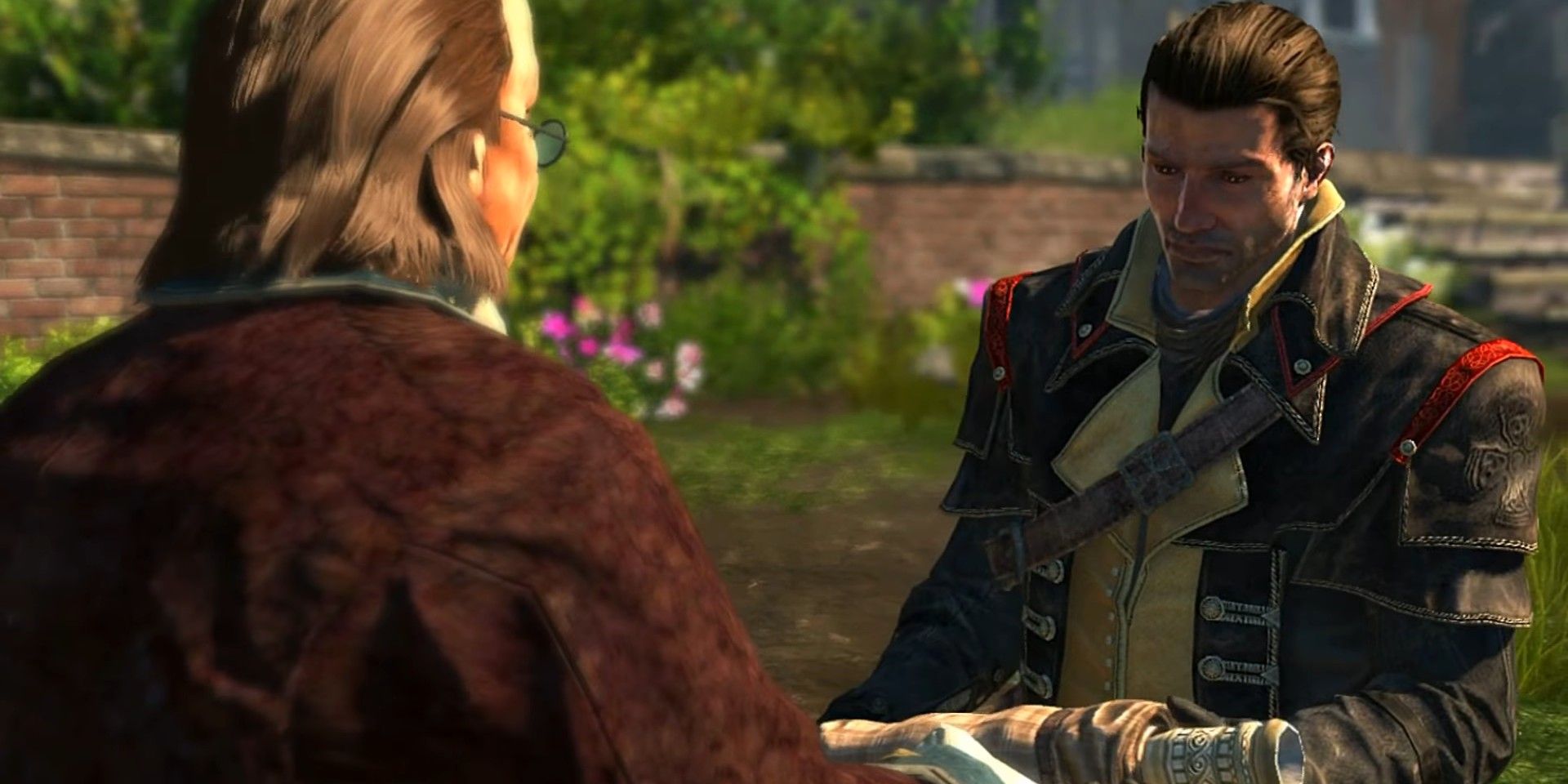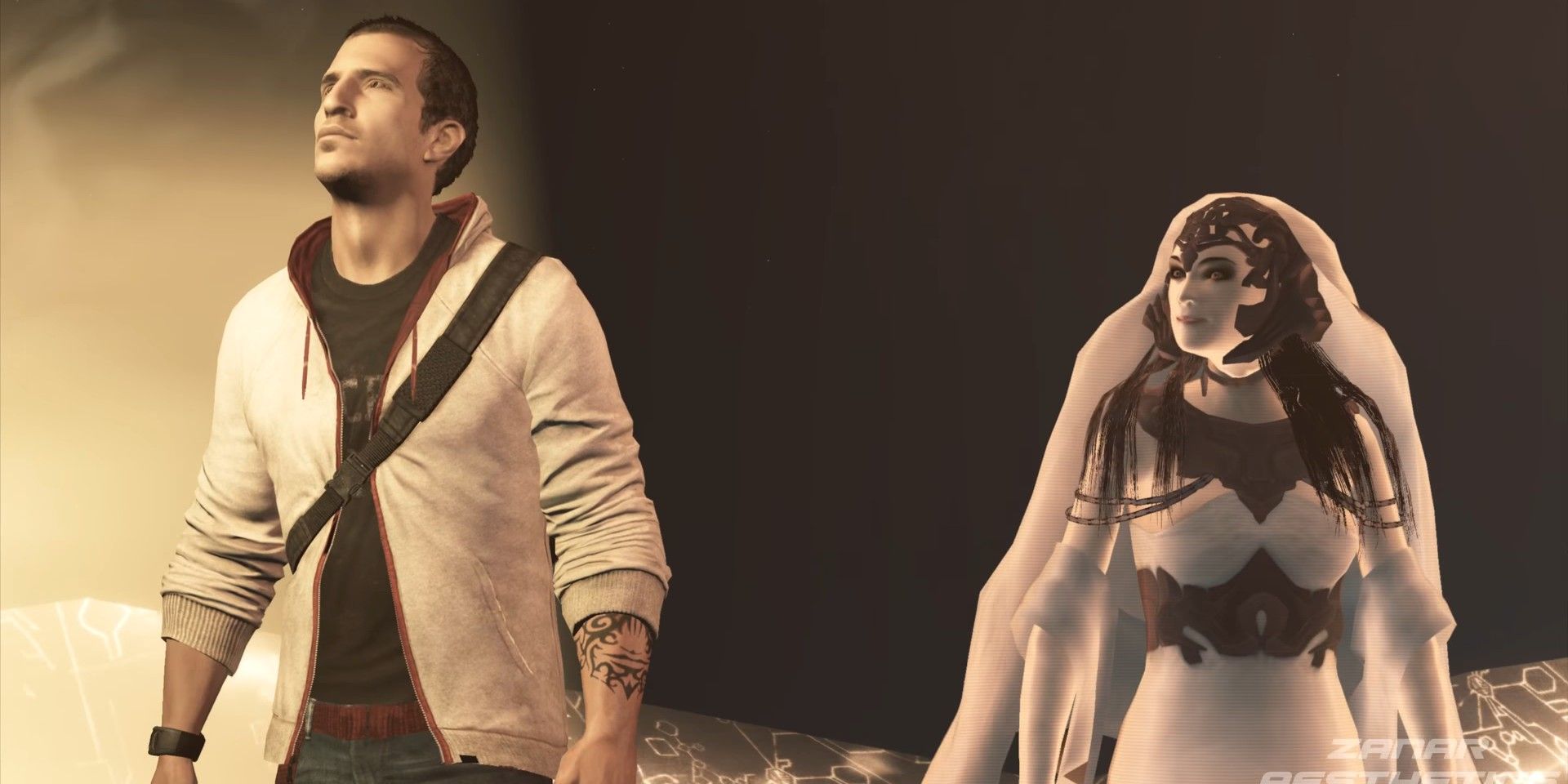Ubisoft's Assassin's Creed series delights in creating its own alternate history, and though the historical fiction it creates fluctuates wildly in tone and quality, it often manages to be entertaining. The franchise began during the Third Crusade in the 12th century before transitioning to Renaissance-era Italy for its highly successful second entry. Until Revelations, the fourth main series title, the series' twist on real historical events was generally highly regarded. The creative liberties Ubisoft took seemed to get bolder and more absurd with every narrative, and though the trend marked a sharp decrease in quality for the series, it became more endearing as the franchise started to embrace its absurdity.
The series follows an eternal conflict between the Assassins and the Templars across different regions and time periods. Assassin's Creed's present-day overarching story focuses on a company called Abstergo (run by the Templars) which can access memories of historical figures. Generally, these memories are used to locate and research artifacts from an advanced alien civilization that predates humanity, known as the First Civilization (or Isu). Settings have ranged from Egypt during the Ptolemaic period to 19th century London, where each game assigns its iconic factions to opposite sides of a famous conflict.
Revelations can arguably be considered the first entry to jump the shark since its First Civilization lore becomes less mysterious, but AC3's version of the American Revolution may be far messier. In the third main title, the Templars side with the colonials while the Assassins side with Native Americans, though each side's involvement with Assassin's Creed 3's historical figures is unclear, and the game has trouble juggling accuracy with implementation of established lore. Ubisoft appears to take far less care in building its setting after that point, and though its improved gameplay prevented future entries from receiving the same ridicule, the narrative only goes further off the rails. These are the very worst alternate timeline decisions Ubisoft made in the Assassin's Creed series, in no particular order.
The Lost City Of Atlantis & Mythological Creatures Are Real
Assassin's Creed established fairly early on that the gods humanity has come to worship are actually powerful members of the First Civilization. Assassin's Creed Odyssey, which takes place in Greece during the Peloponnesian War, doubled down on the concept by implementing Greek Gods, monsters, and the fictional city of Atlantis into human history. While magical artifacts have been a staple of the series since the first entry, Assassin's Creed's fusion of Isu and mythology means the basis of its altered history is now fantastical. Including mythological monsters as bosses is an interesting idea, but it encouraged the franchise to stop pretending it is a science fiction series and embrace magic. Isu technology went from incomprehensibly advanced to blatantly supernatural, and the change raises the question: why invest in experimental monsters at all? The Peloponnesian War is interesting enough on its own; presenting Zeus, Poseidon, and Hades as historical figures just makes the setting feel cheap and less genuine.
World War 2 Was A Templar Plot
Strangely enough, this piece of lore was first established through collectibles in Assassin's Creed 2 and was later fleshed out in a graphic novel titled Assassin's Creed: Conspiracies, emphasizing that Assassin's Creed should never use a WW2 setting. It turns out the AC universe's World War 2 was not a genocidal attempt at world domination fueled by xenophobia; it was a Templar plot to establish a new world order with a unified currency, and Roosevelt, Stalin, Hitler, and Churchill were all in cahoots. Though Ubisoft likely incorporated the lore without much thought toward its implications, the decision ends up being an offensive disregard of the time period's tragedies. The plan itself doesn't really make sense; if the Templars control the major political players, then there's no reason they should actively oppose their own world domination efforts by pitting Stalin and Churchill against Hitler. At this point, fans are likely comfortable with the fact that AC's world does not stand up to scrutiny, but Assassin's Creed II showed Ubisoft's problems before they became blatant by incorporating WW2 in the most confusing way possible.
George Washington Is A Tyrant King In Yet Another Timeline
This alternate history decision is an outlier due to its occurrence in an alternate timeline, which is the narrative equivalent of the protagonist waking up to realize it was all just a dream. The story takes place in Assassin's Creed III's major DLC, The Tyranny of King Washington, where George Washington uses First Civilization artifacts to take over the US and tries to conquer England. Though the story is one of the series' more absurd ideas, the alternate timeline explanation makes it unclear whether the events canonically occur in an alternate universe or are imagined by Connor, the protagonist. Regardless, the premise of using an alternate timeline within AC's established alternate timeline for an entire Assassin's Creed DLC is ridiculous, and though it supposedly causes Washington to turn away from tyranny, it holds no real significance in the story.
Getting Too Close To The Present
Ubisoft often rewrites historic conflicts using the same template - any major war is really a means for Templars to search for Pieces of Eden or take over the world. One of Ubisoft's best decisions was abandoning the conflict altogether in Origins, which allowed the game to alter history without having to worry about its messy established canon. Before the series shifted to ancient history, it had quite a few games set after the year 1700, and each one has its own trouble balancing history and lore.
Black Flag turns the British and Spanish campaign against piracy into a hunt for a Piece of Eden, while Unity turns the French Revolution into a confusing play for world domination, and neither of these major events in Assassin's Creed's timeline are particularly compelling on their own. By the time Syndicate came out, the series was more invested in shoehorning historical figures into its alternate history than it was in exploring a time period. This section of the series does have some fun, self-aware moments of unbridled absurdity, like when Benjamin Franklin gives a grenade launcher to Rogue's protagonist Shay or Syndicate's Lydia helps Churchill win WW1 in exchange for his supporting women's suffrage, but genuine attempts to ground the story are often too little, too late.
The Isu Digitally Survived Their Apocalypse
Introducing a First Civilization character in the present-day plotline in Brotherhood may be the worst narrative decision Ubisoft made, proving that Assassin's Creed should end its long-running story. The absurdity of the series' storylines set in recent history make the overarching plot less impactful, but it is also a natural evolution of the early entries' narratives. Since the series' early days in 12th century Holy Land during the Crusades, the altered history has always been at least a little playfully ridiculous. After all, Pieces of Eden could basically mind-control entire populations from the beginning, so although the timeline jumped the shark plenty of times as it went on, it was always somewhat expected. The story's integrity was destroyed completely when Juno, an Isu who almost became the series' villain, started interacting with Assassin's Creed's present-day player characters.
The Assassins and the Templars practically became irrelevant as the two factions devolved into pawns in an advanced species' effort to control humanity's fate, making each struggle a farce within a farce. The First Civilization was an ideal fantastical element when it was shrouded in mystery, causing humans to fight over artifacts they can never fully understand. The overarching story became lost when the curtain was lifted, constantly switching protagonists in a vain effort to link historical settings despite an incoherent big picture. The three most recent entries deal with this decision by ignoring it almost completely and using Isu-related lore to incorporate mythological elements, once more shifting the focus to humanity's relationship with the lost civilization and its necessary balance of power between the Assassins and Templars. Ubisoft clearly downplayed the revelatory event for a reason: Assassin's Creed's present-day story holds it back from once again finding its footing.

